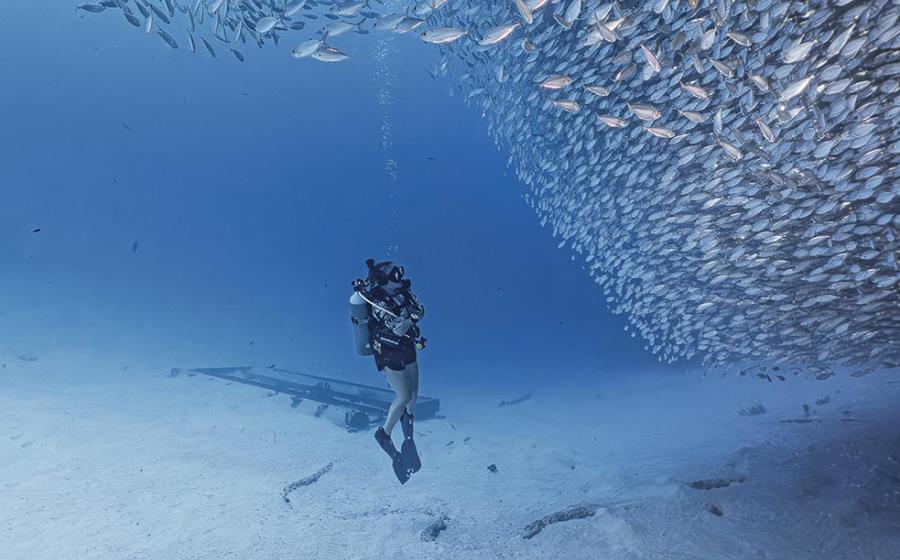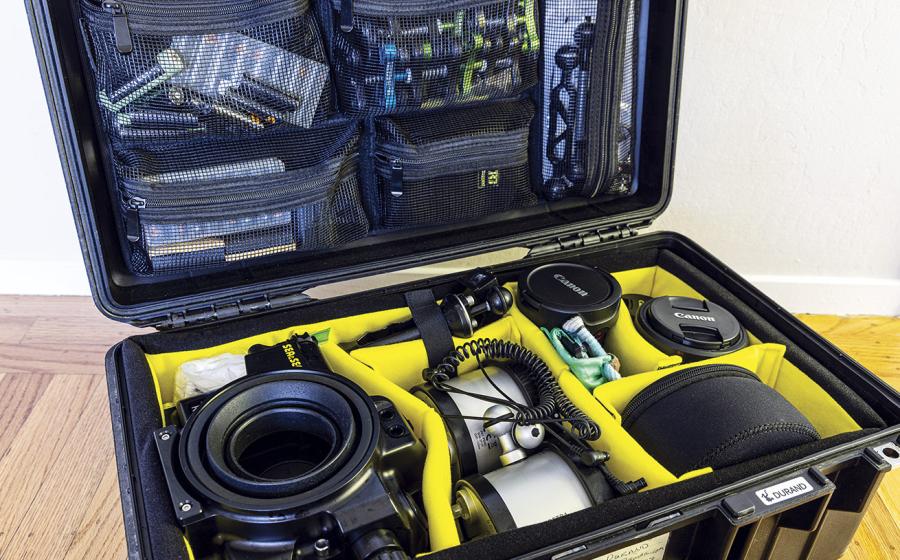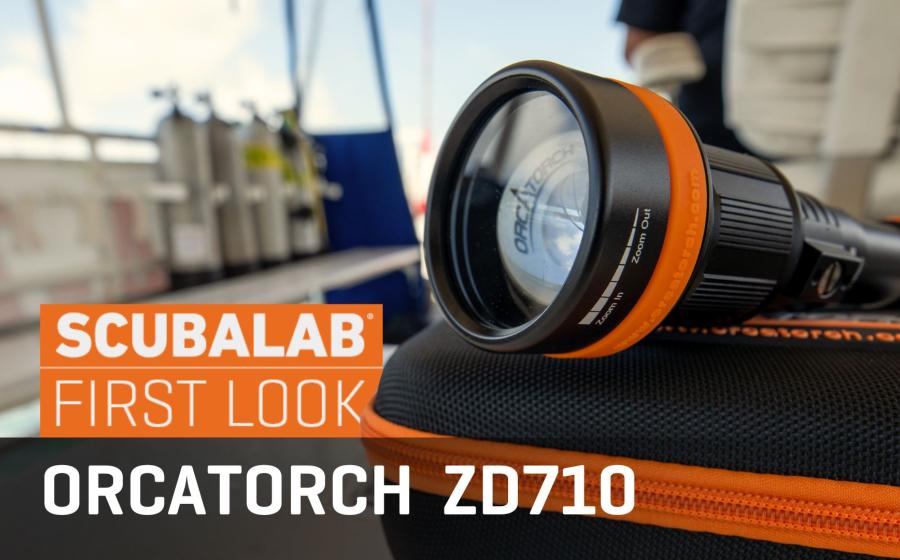Heart-Smart Diving

July 2007
By Selene Yeager
Photograph by Joseph Byrd
Though drowning is officially the No. 1 cause of diver death, heart disease (No. 2 on the list) kills more divers than any other health condition and, not surprisingly, often contributes to drowning. The problem, say cardiologists, isn't that diving is unhealthy for your heart; it's that people with unhealthy hearts go diving.
"You have overweight and sedentary people who go to Hawaii for their vacation and sign up for the scuba excursion, never suspecting that they might be at risk for a heart attack," explains Fernando Roth, M.D., a cardiologist and occasional diver practicing in Pasadena, Calif. "Then they go out and get anxious or physically stressed and have a heart attack." Indeed, statistics show many divers experience heart attack--or worse, sudden death--as their first inkling that they have a troubled ticker.
Under Pressure
Though many of us seek the embrace of the cool blue underworld to give our minds a pleasant retreat from the nonstop stress of life above surface, our hearts don't get a break during our escape. On the contrary, they end up working overtime. Cold water, pre-dive jitters, choppy surface swims, even just immersing yourself in water can raise your blood pressure or otherwise tax your cardiovascular system. Any underlying heart disease, such as hardening of the arteries, can spell disaster. That's why it's essential that all divers practice heart-smart diving. Here's what experts recommend:
Call for a Checkup Today
Polls show that fewer than half of American men get an annual exam, and though many women are faithful about mammograms, they're not so diligent about the body behind the breasts. The only way to know if you're at increased risk for heart disease (or if you actually have early stages of heart disease) is to get an exam. See your doctor to have your blood pressure and blood work (cholesterol, triglycerides, etc.) done.
This is especially important once you hit 35, says DAN physician Jim Caruso, M.D., who has done extensive research on heart disease and diving. "There's a real spike in cardiovascular death rates in the 35 to 45 age transition," he says. New and infrequent divers in that age range and those who have let their fitness slip over the years should get a medical evaluation. So should any diver who has risk factors for heart disease, especially strong family history, smoking and advanced age.
Run Upstairs
"While most diving is relatively low physical exertion, some is not, and you have to have cardiac reserve to get out of emergency situations, render aid to a buddy, and so on," says Caruso. If you can't dash down the block to catch a ride or run up a flight or two of stairs without gasping for breath or stopping for a break, your cardiovascular system is not in shape for scuba diving. Consider this: Before someone who has undergone heart surgery can get back in the water, DAN doctors advise that they be able to exercise up to a level of 13 METs--the equivalent of running an eight-minute-mile pace for a few seconds--without adverse symptoms. That's the sign of a healthy, dive-ready heart; it should be your barometer as well.
Racking up just 30 minutes of exercise a day can improve your fitness, slash your heart disease risk and keep your heart strong for scuba.
Dump the Cigarettes
No lectures, just facts: Cigarette smoking damages your heart and lungs. Nicotine constricts the blood vessels, sets the stage for high blood pressure and further burdens your heart, especially if you light up right before a dive. The carbon monoxide in cigarette smoke hogs up space on your red blood cells and reduces the amount of oxygen they can carry, lowering your exercise tolerance (and conceivably messing up your gas exchange). It's a preventable cause of premature death both in and out of the water. While you're at the doc, ask about new ways to make quitting painless.
Know About PFO
A well-publicized Swiss study from 2004 reported that divers with a patent foramen ovale (PFO), a tiny opening between the heart's two upper chambers that never closed completely as it should have after birth, were five times more likely to experience a serious case of DCS than those whose chambers were completely walled off.
PFO is surprisingly common, affecting about 25 to 30 percent of us. In some people, the opening is microscopic. In others, it's large enough to allow blood (and therefore bubbles) to shunt through. Therein lies the risk. If bubbles that form on the right side of your heart pass through to the left, they may get pumped out into circulation, where they can block blood flow and cause severe problems, like neurological DCS, as well as brain lesions (areas of dead tissue). But unless you're tested for it, there's no way to know if you have one.
Currently, leading dive physicians agree that PFO risk isn't severe enough to warrant widespread screening, though if you've ever had unexplained DCS, you should definitely get tested. If you know you have a PFO, a few easy precautions can help keep you safe: Stay above 100 feet. Ascend very slowly. Always include a short safety stop at 15 to 20 feet. Avoid several descents during one dive. Take a surface interval of at least two hours between dives (or avoid repetitive dives on a single day). These measures will give your body ample time to offgas and reduce the likelihood of complications.
You also can have your PFO surgically closed. "We can close these holes through a vein in the leg," says Roth. "It's about an hourlong procedure and is not open-heart surgery."
Take Scuba-Friendly Meds
Many heart conditions can be managed with medication. But some commonly prescribed drugs, like beta blockers, can decrease your exercise tolerance or have other side effects that don't mix safely with scuba diving. "ACE inhibitors are the preferred drugs for treating scuba divers," says Caruso. Calcium channel blockers are another choice, but they can cause lightheadedness when you go from sitting to standing. Work with your doctor to find a drug that works best for you.
Let Your Heart Heal
Having a heart attack, bypass surgery or some other significant cardiac episode does not automatically shut the door on your diving career. But it does put it on hold. You'll need to wait six months to a year to let your heart heal, then pass a cardiovascular exam before getting back in the water.
Know When To Say No
There are some symptoms that are big red flags (and not the kind with the diagonal white stripe) in scuba. One is chest pain, a classic symptom of hardening of the arteries. If you have any chest pain or lightheadedness and breathlessness during exercise, you absolutely should not dive. All known cardiac conditions, such as high blood pressure, heart murmurs and abnormal heartbeats, should be evaluated by a doctor who knows diving.

July 2007
By Selene Yeager
Photograph by Joseph Byrd
Though drowning is officially the No. 1 cause of diver death, heart disease (No. 2 on the list) kills more divers than any other health condition and, not surprisingly, often contributes to drowning. The problem, say cardiologists, isn't that diving is unhealthy for your heart; it's that people with unhealthy hearts go diving.
"You have overweight and sedentary people who go to Hawaii for their vacation and sign up for the scuba excursion, never suspecting that they might be at risk for a heart attack," explains Fernando Roth, M.D., a cardiologist and occasional diver practicing in Pasadena, Calif. "Then they go out and get anxious or physically stressed and have a heart attack." Indeed, statistics show many divers experience heart attack--or worse, sudden death--as their first inkling that they have a troubled ticker.
Under Pressure
Though many of us seek the embrace of the cool blue underworld to give our minds a pleasant retreat from the nonstop stress of life above surface, our hearts don't get a break during our escape. On the contrary, they end up working overtime. Cold water, pre-dive jitters, choppy surface swims, even just immersing yourself in water can raise your blood pressure or otherwise tax your cardiovascular system. Any underlying heart disease, such as hardening of the arteries, can spell disaster. That's why it's essential that all divers practice heart-smart diving. Here's what experts recommend:
Call for a Checkup Today
Polls show that fewer than half of American men get an annual exam, and though many women are faithful about mammograms, they're not so diligent about the body behind the breasts. The only way to know if you're at increased risk for heart disease (or if you actually have early stages of heart disease) is to get an exam. See your doctor to have your blood pressure and blood work (cholesterol, triglycerides, etc.) done.
This is especially important once you hit 35, says DAN physician Jim Caruso, M.D., who has done extensive research on heart disease and diving. "There's a real spike in cardiovascular death rates in the 35 to 45 age transition," he says. New and infrequent divers in that age range and those who have let their fitness slip over the years should get a medical evaluation. So should any diver who has risk factors for heart disease, especially strong family history, smoking and advanced age.
Run Upstairs
"While most diving is relatively low physical exertion, some is not, and you have to have cardiac reserve to get out of emergency situations, render aid to a buddy, and so on," says Caruso. If you can't dash down the block to catch a ride or run up a flight or two of stairs without gasping for breath or stopping for a break, your cardiovascular system is not in shape for scuba diving. Consider this: Before someone who has undergone heart surgery can get back in the water, DAN doctors advise that they be able to exercise up to a level of 13 METs--the equivalent of running an eight-minute-mile pace for a few seconds--without adverse symptoms. That's the sign of a healthy, dive-ready heart; it should be your barometer as well.
Racking up just 30 minutes of exercise a day can improve your fitness, slash your heart disease risk and keep your heart strong for scuba.
Dump the Cigarettes
No lectures, just facts: Cigarette smoking damages your heart and lungs. Nicotine constricts the blood vessels, sets the stage for high blood pressure and further burdens your heart, especially if you light up right before a dive. The carbon monoxide in cigarette smoke hogs up space on your red blood cells and reduces the amount of oxygen they can carry, lowering your exercise tolerance (and conceivably messing up your gas exchange). It's a preventable cause of premature death both in and out of the water. While you're at the doc, ask about new ways to make quitting painless.
Know About PFO
A well-publicized Swiss study from 2004 reported that divers with a patent foramen ovale (PFO), a tiny opening between the heart's two upper chambers that never closed completely as it should have after birth, were five times more likely to experience a serious case of DCS than those whose chambers were completely walled off.
PFO is surprisingly common, affecting about 25 to 30 percent of us. In some people, the opening is microscopic. In others, it's large enough to allow blood (and therefore bubbles) to shunt through. Therein lies the risk. If bubbles that form on the right side of your heart pass through to the left, they may get pumped out into circulation, where they can block blood flow and cause severe problems, like neurological DCS, as well as brain lesions (areas of dead tissue). But unless you're tested for it, there's no way to know if you have one.
Currently, leading dive physicians agree that PFO risk isn't severe enough to warrant widespread screening, though if you've ever had unexplained DCS, you should definitely get tested. If you know you have a PFO, a few easy precautions can help keep you safe: Stay above 100 feet. Ascend very slowly. Always include a short safety stop at 15 to 20 feet. Avoid several descents during one dive. Take a surface interval of at least two hours between dives (or avoid repetitive dives on a single day). These measures will give your body ample time to offgas and reduce the likelihood of complications.
You also can have your PFO surgically closed. "We can close these holes through a vein in the leg," says Roth. "It's about an hourlong procedure and is not open-heart surgery."
Take Scuba-Friendly Meds
Many heart conditions can be managed with medication. But some commonly prescribed drugs, like beta blockers, can decrease your exercise tolerance or have other side effects that don't mix safely with scuba diving. "ACE inhibitors are the preferred drugs for treating scuba divers," says Caruso. Calcium channel blockers are another choice, but they can cause lightheadedness when you go from sitting to standing. Work with your doctor to find a drug that works best for you.
Let Your Heart Heal
Having a heart attack, bypass surgery or some other significant cardiac episode does not automatically shut the door on your diving career. But it does put it on hold. You'll need to wait six months to a year to let your heart heal, then pass a cardiovascular exam before getting back in the water.
Know When To Say No
There are some symptoms that are big red flags (and not the kind with the diagonal white stripe) in scuba. One is chest pain, a classic symptom of hardening of the arteries. If you have any chest pain or lightheadedness and breathlessness during exercise, you absolutely should not dive. All known cardiac conditions, such as high blood pressure, heart murmurs and abnormal heartbeats, should be evaluated by a doctor who knows diving.










